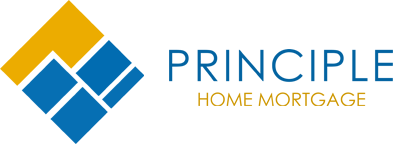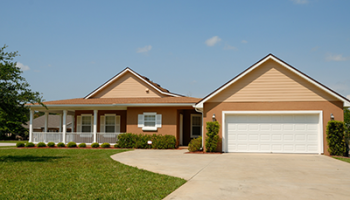Low Down Payment Mortgage Loan Options
Low Down Payment Mortgage Loan Options
Many potential homebuyers mistakenly believe that nothing less than 20 percent is required to secure a mortgage for a home they wish to purchase. However, there is good news if you are one of many people struggling to save the money needed for a down payment. There are four excellent programs available to individuals and families in search of mortgage loan options requiring low down payments.
D. Shane Whitteker is the owner and chief broker at Williamsport mortgage company Principle Home Mortgage. We sat down with him to discuss some low down payment mortgage options.
VA Low Down Payment Option
Prospective homebuyers with military experience can possibly qualify for a VA loan, complete with 100 percent financing. Approximately 90 percent of VA mortgage borrowers take advantage of this no down payment option.
“The VA loan option allows for 100% financing of the purchase price. Overall the VA mortgage option is one of the best options financially if a person qualifies,” Whitteker says.
According to Whitteker, the benefits of this type of mortgage extend to mortgage insurance and closing costs as well.
“A VA mortgage also allows the seller to pay up to 4% of the purchase price towards the buyer’s closing costs. This typically is enough seller assist to cover most if not all closing costs,” Whitteker says.
In addition to the little or no down payment required for VA loans, you will also benefit from not needing mortgage insurance.
“The rates on VA are very competitive and the fact that there is no monthly mortgage insurance is a significant cost advantage for the VA mortgage,” Whitteker says.
Want a VA loan, but also want to put some money down? There are advantages for borrowers that choose to place a small down payment toward the purchase of their new home. A five percent down payment on a new home provides the borrower with a decreased funding fee of 1.5 percent, down from 2.15 for borrowers who opt for zero down payment. The funding fee is even lower when a ten percent down payment is offered. The funding fee varies based on first time or subsequent use and whether the veteran was regular military or in the reserves or national guard.
Eligibility
VA Loans are guaranteed by the United States Department of Veterans Affairs and are available to both current and past military personnel. The spouses of deceased veterans and other eligible VA buyers can also take advantage of this opportunity.
“You must be a qualified veteran or currently serving in the military to access this type of mortgage,” Whitteker says. “If a veteran is considered to be disabled by the VA, the VA will waive the up front funding fee which is typically financed.”
Credit Requirements
Interested in a VA mortgage loan, but unsure you’ve got the credit to qualify? Whitteker recommends contacting a mortgage broker.
“These loans are available for less than perfect credit,” Whitteker says. “The VA doesn’t actually set a minimum credit score. The veteran still needs to meet certain credit criteria but with a knowledgeable mortgage broker this loan is an option for many people who may think they wouldn’t qualify.”
The Department of Veteran Affairs does not set a minimum credit score requirement for VA Loans. However, it is important to note loans are not given directly to borrowers from the Department. Individual lenders are given the right to set their own minimum credit requirements.
USDA Rural Housing Mortgage
USDA loans are another excellent option for mortgage borrowers who need relief from expensive down payments. This program is available to borrowers that wish to purchase, rehabilitate, or build a home in a designated rural area.
According to Whitteker, there are significant financial benefits to this type of mortgage loan as well.
“This loan also allows for 100% of the purchase price to be financed (zero down payment),” Whitteker says. “The seller is able to contribute up to 6% of the sales price towards closing costs. This is sufficient to cover all closing costs on most transactions depending on purchase price.”
The USDA loan program was started to benefit low-income borrowers who wish to live in rural areas and do not have access to other pathways to home ownership. The program's intent is to promote prosperity for rural families and improve life in rural America.
A number of factors affect the eligibility for a single family guaranteed loan from the USDA:
Eligibility
“This mortgage option is limited by geographical region,” Whitteker notes. “It is designed to serve more rural communities. There are also income limits which change based on location as well.”
To get a USDA mortgage loan you’ll also need your finances in order.
“Qualification is a bit more strict, a higher credit score is required and a more clean credit history is a requirement,” Whitteker says. “The debt to income ratio requirements are also more strict.”
Other eligibility requirements for a USDA mortgage loan include:
• Applicant must use home for primary residence.
• Applicant must be legally able to obtain a loan.
• Applicant must be a citizen of the United States or a qualified non-citizen.
• Applicant must not be barred or suspended from federal program participation.
Credit Requirements
The USDA does not require a minimum credit score. However, the Guaranteed Underwriting System used by the USDA allows for borrowers to be approved with less than a 640 credit score. In order to qualify for a manually underwritten USDA loan the minimum credit score is set at 640.
Whitteker recommends contacting a mortgage broker to learn all the details of this and any other mortgage.
“It is important to work with a knowledgeable mortgage broker to see if this loan would work for you” Whitteker says. “Rates and mortgage insurance are competitive on this type of mortgage, and mortgage insurance is relatively lower than with FHA or conventional mortgages.”
Conventional 97 Low Down Payment Mortgages
The Conventional 97 loan offered by Fannie Mae is another option for mortgage seekers looking to save money on a down payment. The loan is offered to buyers who have not owned a home within the last three calendar years. Fannie Mae facilitates the loans by financing 97% of the purchased home's value. This leaves a three percent down payment requirement for the borrower.
Whitteker notes that this type of loan doesn’t have all the financial benefits of other low interest mortgages.
“These mortgages only allow for 3% in seller assistance towards closing costs which usually does not cover all of the costs,” Whitteker says.
In addition to the lower seller assist, Whitteker says there are other considerations.
“Rates and mortgage insurance tend to be higher on this product as well,” Whitteker says.
Eligibility
The loan is available for borrowers who are classified in the low or moderate income group. Other factors like credit history and employment background may also be considered by the lender.
According to Whitteker, there are also sometimes ways to reduce this mortgage loan’s interest rate.
“Depending on location there are some options to reduce the interest rate on these mortgages depending on the borrower and co borrower income levels,” Whitteker says. “Ask your mortgage broker about this option.”
Credit Requirements
The minimum FICO score for borrowers interested in the Conventional 97 mortgage loan option is 620. It should be noted, however, the majority of borrowers approved for the loan have a credit score of 700 or better. Potential borrowers closer to the 620 threshold may have a difficult time qualifying for the conventional 97 mortgage loan.
Banks that participate in the program are allowed to set their own minimum FICO requirements. It is only required that the minimum requirements meet or exceed the minimum standard set by Fannie Mae.
“Where this mortgage option really comes into its own is on a property that won’t qualify for a government loan like FHA, USDA or VA that all have very similar property requirements,” Whitteker notes. “As an example, if the well and septic are only 70 feet apart you typically will not qualify for one of the government loan options but conventional financing would not have an issue with this in general.”
FHA Low Down Payment Option
Perhaps the most common low down payment option for mortgage seekers is a loan backed by the Federal Housing Administration. The assurance by the FHA allows lenders to take a bit more of a risk when considering to whom they will give mortgage loans. You can pay as low as 3.5 percent for a down payment when you choose to finance your home with an FHA backed mortgage.
Whitteker notes that an FHA mortgage allows for a robust seller assistance on closing costs.
“This loan type also allows for the seller to contribute up to 6% of the sales price towards closing costs.”
Eligibility
The FHA is the largest insurer of mortgages for residential properties in the country. Potential borrowers must have a steady history of employment and proof of income. The home must also be the primary residence of the borrower. Borrowers must be 18 years of age and show proof of citizenship or resident alien status.
Credit Requirements
“There is no minimum credit score requirement set by FHA but they do require certain criteria on the credit report to be met,” Whitteker says.
To qualify for a 3.5 percent mortgage loan backed by the FHA, the borrower needs a 580 or better credit score. There are occasions when borrowers with scores from 500 to 580 are able to obtain FHA backed loans. However, these loans are sometimes difficult to obtain and the down payment requirement is 10 percent for borrowers in this credit score range.
Borrowers must maintain a debt to income ratio of 43 percent. In some cases, exceptions are made that allow the debt to income ratio to be extended as far as 50 percent for manually underwritten loans. Loans that are approved with automated underwriting may have debt to income ratios up to 56%. Mortgage insurance is also required for borrowers taking advantage of FHA insured mortgage loans.
“This type of loan is an advantage for clients that need a low down payment, have a higher debt to income ratio or have had some credit issues on the past,” Whitteker says. “There are also more options coming available where brokers work with lenders that offer down payment assistance programs with FHA. This can reduce the out of pocket down payment to around 1.5% or less of the purchase price.”
Summary
Many people delay their dreams of home ownership because they find it difficult to save enough money for the down payment. In many cases, it is possible to shorten the wait for a home through programs that lower the amount needed for a down payment. The four low down payment options discussed above are great options for the potential homeowner who does not possess the money or desire to pay for a traditional mortgage loan down payment.
“One thing that is important to keep in mind for all of these mortgage types is that the down payment and closing costs are separate," Whitteker says. "If the seller is not covering the closing costs or part of them the buyer is responsible to come up with the required down payment and also any closing costs that are due at closing. I always recommend getting in touch with a mortgage broker like Principle Home Mortgage to have your situation evaluated so you know exactly what to expect and how to plan for this very significant event of purchasing a home."
Is a low down payment mortgage right for you and your situation? Whitteker and his team at Principle Home Mortgage are available to discuss your road to home ownership - and to answer any questions you have. Contact them here or call them at (814) 308.0959.
VA Home Loans In Williamsport: A Primer
If you're looking for a Williamsport VA home loan, this article will give you a solid foundation. VA home loans - in Williamsport or anywhere else in Pennsylvania - are one of the best ways to obtain a home mortgage.
Step-By-Step Guide to Being a First Time Home Buyer
As a first time home buyer, you'll have a lot of questions. Check out our Williamsport First Time Home Buyer Guide for answers.
First Time Williamsport Home Buyer Mortgage Tips: The Inside Scoop
If you're considering buying a home in Williamsport - or anywhere else in Pennsylvania, you're guaranteed to learn something new in this informative guide.



